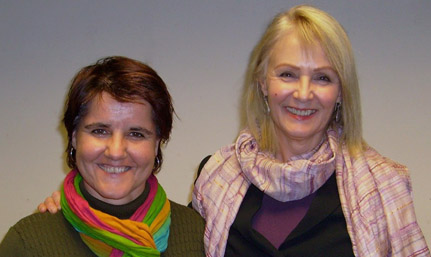Latest News Archive
Please select Category, Year, and then Month to display items
04 April 2024
|
Story Lunga Luthuli
|
Photo SUPPLIED
 Dr Juliet Kamwendo champions gender-inclusive climate action in Africa. Her expertise at the recently held AFR100 workshop highlighted vital steps towards sustainable and equitable development.
Dr Juliet Kamwendo champions gender-inclusive climate action in Africa. Her expertise at the recently held AFR100 workshop highlighted vital steps towards sustainable and equitable development.
Dr Juliet Kamwendo, Lecturer and Programme Director for Gender Studies in the Centre for Gender and Africa Studies at the University of the Free State, is spearheading efforts to integrate gender considerations into Africa's climate restoration agenda. Reflecting on her involvement, Dr Kamwendo stated, "This is particularly crucial, as women make up almost 50% of the population in Africa, and the depletion and degradation of land affect them disproportionately."
She recently served as a gender expert at the AUDA-NEPAD AFR100 workshop in Ouagadougou, Burkina Faso, from 25 to 29 March 2024. This initiative aims to restore forests and degraded land across Africa by 2030, with a focus on gender equality.
The workshop emphasised the integration of gender perspectives into the AFR100 project, acknowledging the disproportionate impact of land degradation on women. Dr Kamwendo's expertise highlighted the need to empower women in climate change interventions, addressing existing gender inequalities exacerbated by environmental degradation.
“Women – who are primarily responsible for household food security and water provision – bear the brunt of environmental degradation, leading to increased workloads, reduced income opportunities, and heightened vulnerability to climate-related disasters. Furthermore, the loss of forest cover and biodiversity further exacerbates the challenges faced by women, particularly in rural areas where they depend heavily on natural resources for their livelihoods,” added Dr Kamwendo.
Her participation highlights academia's crucial role in fostering inclusive and sustainable development, emphasising interdisciplinary collaboration to tackle complex environmental challenges. Through initiatives such as AFR100, stakeholders are working towards a more resilient and gender-responsive future for Africa.
Senior professor launches new book in London
2013-05-13
|

|
Alejandra Boni (left) is an associate professor at the Universidad Politécnica de Valencia in Spain and Melanie Walker is a Senior Research Professor and Director of the Centre for Higher Education and Capabilities Research (CHECaR) at UFS.
13 May 2013 |
Melanie Walker and Alejandra Boni (Eds.) were hosted by the Institute of Education at the University of London, in April to launch the publication of their new book, titled: Human Development and Capabilities: Re-imagining the university of the twenty-first century (Routlege).
In the face of reductionist and “thin” human capital approaches to higher education globally, the book imaginatively applies a theoretical framework to universities as institutions and social practices from human development and the capability approach. The book attempts to show how universities might advance equalities rather than necessarily widen them, and how they can contribute to a sustainable and democratic society.
Picking through the capability approach for human development, in relation to universities, this book highlights and explores three main ideas:
- theoretical insights to advance thinking about human development and higher education
- policy implications for the responsibilities and potential contributions of universities in a period of significant global change and
- operationalising a New Imaginary
The book is available for purchase online and will be added to the library collection soon.